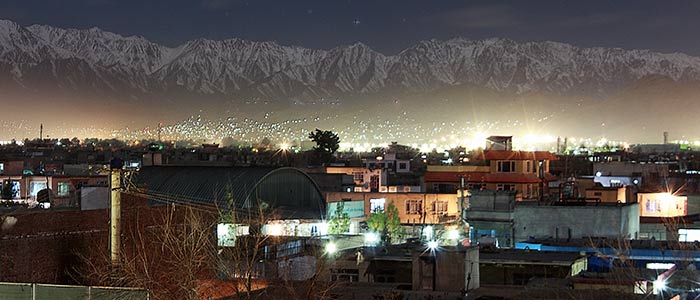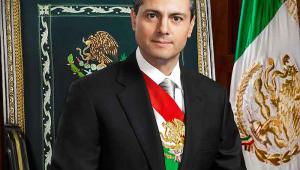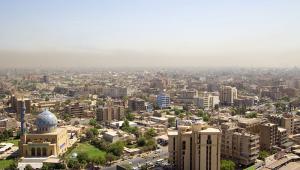Web_AfghanistanNight_iStock_000074678055_Large.jpg

Afghanistan at night
Transparency International, the global anti-corruption movement, has collated and reviewed the Afghanistan National Unity Government’s (NUG) anti-corruption commitments over the past two years.
The report was published just before the international community gathered this week for a major donor summit at which a new four-year $12bn aid package was signed for the nation.
The European Union also has agreed a deal with the NUG in recent days to allow member states to deport an unlimited number of Afghan asylum seekers back to the country, whereupon the government will be obliged to receive them.
According to The Guardian, EU officials have denied that conditions were attached to the aid pledges, such as the stipulation to receive migrants deported from EU countries. However, a leaked memo earlier this year indicated this was indeed an option on the table.
Afghanistan is struggling to negotiate a peace deal with the Taliban and other militant groups, and the country has experienced a resurgence of fighting in the last year.
At the end of last month, the NUG announced a new anti-corruption law, which it hopes will stem the flow of aid lost to corruption. Current estimates suggest $1bn out of every $8bn is lost to graft in the country.
Srirak Plipat, regional director for Asia Pacific at Transparency International, said that tackling corruption was key in bringing the long-running war in the territory to an end.
He said: “Corruption continues to fuel the ongoing war in Afghanistan and undermines the effectiveness of billions of dollars of international aid. Promises to reform must be backed up with actions.”
He said that while the new draft anti-corruption law was “welcome on paper”, unless it was passed by the parliament and implemented immediately “nothing will change for the millions of Afghans who suffer the consequences of corruption”.
Since the NUG came to power in 2014, it has introduced around 50 measures to fight corruption. The Transparency International report said the reform landscape was crowded, under-resourced and often confusing.
To help remedy the situation, it highlighted 22 commitments that, if achieved, would most likely lead to meaningful progess in tackling corruption. These cover seven sectors: judiciary, civil service, procurement, civil society, business, extractive industries and donors.
Among them was the stipulation that appointments to the judiciary were based on merit, and were led by an independent judicial services commission. There should also be an increased focus on training qualified prosecutors to speed up prosecutions.
According to the report, a new Anti-Corruption Justice Centre has dealt with fewer than 20 cases, when hundreds of corrupt acts take place daily. It also found the attorney general’s office lacked qualified and professional prosecutors and was subject to political interference.
The report urged the government to set up an independent and well-resourced anti-corruption agency based on the United Nations Convention Against Corruption framework and that involves civil society.
Also, it said that all senior civil servants, politicians and senior staff in the executive, legislative and judicial sectors should publish asset declarations. These declarations needed to be “verified and monitored to ensure that no one is using their positions of power for personal enrichment”.
The NUG must also recognise the important oversight role that civil society plays in monitoring anti-corruption. It recommends that the NUG signs the Open Government Partnership, implements the 2014 Access to Information Law, and includes representatives from civil society and the Afghan parliament as participants or observers.
The report did highlight some areas of progress, however. The NUG had established a National Procurement Agency, which has saved more than $200 million that might have been lost to corruption.













